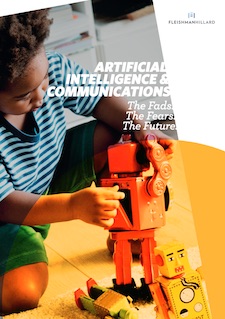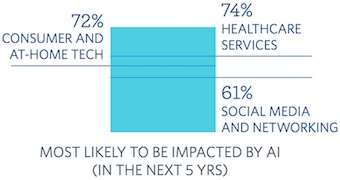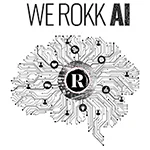People view Artificial Intelligence as an exciting frontier that could solve many of today’s problems but remain wary of a potentially job-eliminating technology they admit they don’t know much about, according to a new report released by FleishmanHillard that gauged the public’s sentiment of AI.
AI has become a hot topic in recent years, but the Omnicom unit’s report suggests that many still lack a full understanding of what AI is and are looking to experts to educate them on the technology and the role it plays in society.
 |
On one hand, the report found that nearly half of the global respondents polled (49 percent) believe AI is an exhilarating topic that will change our lives and jobs for the better, and nearly the same number (45 percent) said they believe the positive potential aspects of AI outweigh the negatives.
On the other hand, more than a quarter of respondents (26 percent) admit they have a poor understanding of what AI is or have no understanding of it at all, and only a third (31 percent) said they’d personally witnessed the benefits of automation.
This lack of education appears to have tempered the public’s expectations about what AI means and how it will affect businesses and industries in the future. More than half of respondents (56 percent) believe AI requires more regulation and restrictions than what is in place now.
Not surprisingly, positive sentiment of AI seems to correlate with those who use the technology the most, and those users tend to skew young. More than 80 percent of respondents ages 18 to 44 said they use AI on a daily basis. By contrast, less than a third of respondents aged 45 and over reported using AI on even a weekly basis. Those between the ages of 25 and 34 responded most positively about the potential benefits of AI, while those between the ages of 55 and 64 were the most pessimistic.
 |
More than half (53 percent) of respondents said they believe that educating the public regarding the role AI plays in society must improve. And nearly two-thirds (61 percent) said they believe the responsibility for doing so should be shared between key stakeholders in business, government and academia.
When asked to name which sectors they think would be most disrupted by AI most over the next five years, respondents cited communications (81 percent), healthcare (74 percent), consumer technology (72 percent) and social media and networking (61 percent).
Slightly more than half of respondents (51 percent) reported using AI technologies on at least a monthly basis.
FleishmanHillard’s report, “Artificial Intelligence & Communications, The Fads. The Fears. The Future” was developed by the agency’s intelligence unit, TRUE Global Intelligence, and was conducted by Finer Weston Data Analysis. They surveyed 2,000 consumers online within the United States and UK. Responses were collected in May.


 Laura Anderson, who rose to VP/GM of global communications and events in a nearly 20 year stint at Intel, will take on the Americas technology chair at Burson following the completion of the BCW and H+K merger on July 1.
Laura Anderson, who rose to VP/GM of global communications and events in a nearly 20 year stint at Intel, will take on the Americas technology chair at Burson following the completion of the BCW and H+K merger on July 1. WE Communications has partnered with ROKK Solutions to form the WE ROKK AI service.
WE Communications has partnered with ROKK Solutions to form the WE ROKK AI service. In the dynamic world of modern business, effective communication is a pivotal tool for success across various industries. At Communications Strategy Group (CSG®), our expertise in embracing innovation in communication extends beyond traditional marketing strategies, paving the way for transformative industry-specific solutions.
In the dynamic world of modern business, effective communication is a pivotal tool for success across various industries. At Communications Strategy Group (CSG®), our expertise in embracing innovation in communication extends beyond traditional marketing strategies, paving the way for transformative industry-specific solutions. There are two types of tech PR professionals. Which one are you? And are C-suite executives making that decision for you?
There are two types of tech PR professionals. Which one are you? And are C-suite executives making that decision for you? While there’s an impulse to grab reporters’ attention with the newest industry-transforming tech product or service, a back-to-basics approach focused on telling the right stories to the right people is a far more successful way to ensure your technology campaign breaks through the clutter of today’s crowded tech landscape.
While there’s an impulse to grab reporters’ attention with the newest industry-transforming tech product or service, a back-to-basics approach focused on telling the right stories to the right people is a far more successful way to ensure your technology campaign breaks through the clutter of today’s crowded tech landscape.


 Have a comment? Send it to
Have a comment? Send it to 
No comments have been submitted for this story yet.